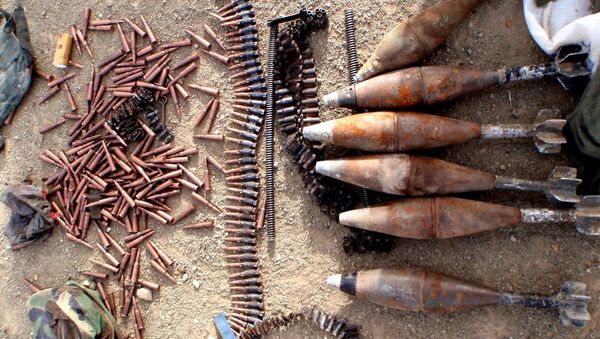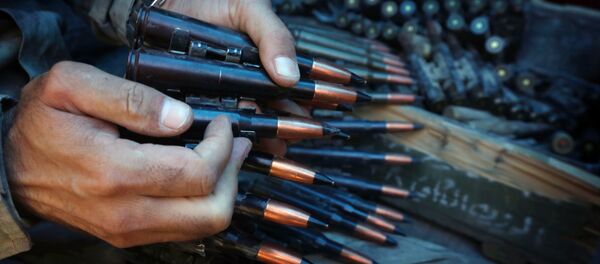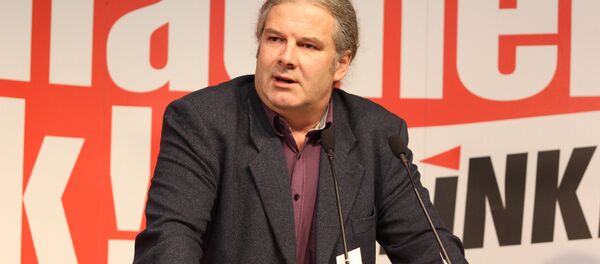The Daesh (Islamic State) arsenal consists of over 100 different kinds of ammunition from 25 different countries, obtained largely through looting of Iraq military bases and battlefield capture from Iraqi government forces, Rasha Abdul Rahim told Sputnik.
"What we want governments now to do is really wake up and take very responsible action, and put in place much stricter controls with their arms suppliers," said Rahim, an advocate for arms control, security trade and human rights at Amnesty International.
"Starting in the 1980s and 1990s during the Iran-Iraq war when tons of weapons were shipped over to Iraq, followed by the 2003 US-led coalition invasion, where again arms were flooding the region in a chaotically mismanaged process."
Weapons supplied to the Iraqi army by British, Chinese, US and Russian suppliers have found their way into the hands of terrorists, a result of corruption and divisions in the Iraqi armed forces, said Rahim.
"Commercial interests shouldn't be allowed to trump the risk of human rights violations, and actually governments have the prime responsibility here, because they grant the licenses for arms companies. So governments really need to ensure that they adequately assess the risk."
Such assessments should be undertaken under the terms of the UN Arms Trade Treaty, said the expert. The treaty was adopted in March 2013 and requires state parties to regulate the export of conventional arms and munitions.




